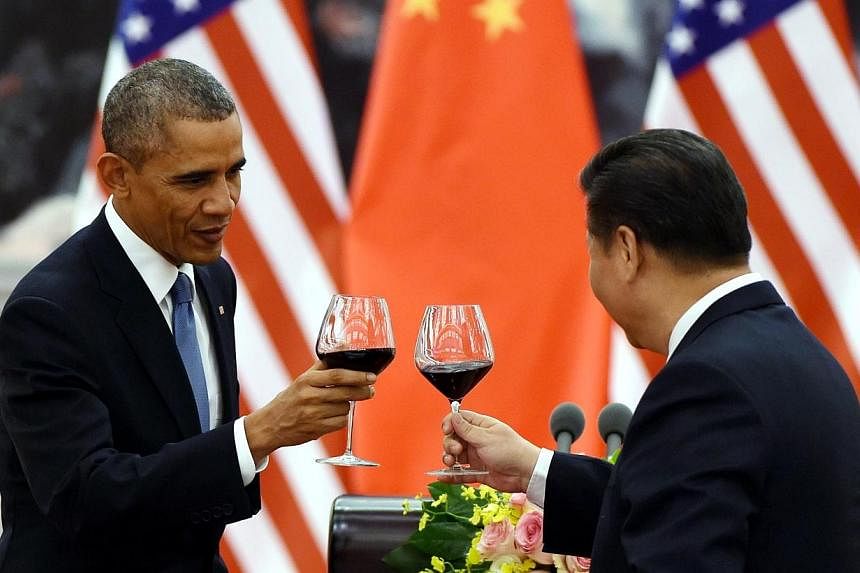The blue skies over Beijing this week may be here to stay.
Secret talks between China and the US have led to a breakthrough in global efforts to reduce carbon emissions, and mitigate climate change.
The two countries said on Wednesday that the US will reduce emissions by 26 to 28 per cent from 2005 levels by 2025, while China pledged to reach peak emissions by 2030.
US Secretary of State Jon Kerry put it like this: "The world's most consequential relationship has just produced something of great consequence in the fight against climate change".
Here are five reasons why the agreement is a big deal:
1. Two biggest polluting countries
China and the US are the two biggest polluting countries in the world, and they account for more than 40 per cent of the global emissions. China alone spews a quarter of global emissions, while US is responsible for 17 per cent.
All other countries are minnows compared to them: India trails a distant third at around 7 per cent according to UN data.
With recent new commitments from Europe, countries responsible for more than half of the world's carbon dioxide emissions are accelerating their emissions cutting plans, the New York Times said.
2. First for China
This is the first time China has agreed to any target for topping out emissions. The 2030 target is not the most ambitious it could have gone for, but the commitment itself is a milestone. To reach that goal, China would have to increase non-fossil sources of energy, like solar power and windmills, to 20 per cent by 2030.
3. Breaking the deadlock
The deal could end the blame game between developed nations and developing countries, on who should be responsible for cutting emissions.
Developed nations have accounted for the larger part of historical emissions, and developing nations have been reluctant to accept sacrifices that are seen as unfair burdens on their still growing economies.
The meltdown at 2009 Copenhagen climate talks was, in large part, due to this impasse.
4. Midnight in Paris
United Nations climate experts agree that it is the eleventh hour for the planet, with an Intergovernmental Panel on Climate Change report this month warning that time was running out to limit the rise in global temperatures to just 2 deg C from the current average.
At talks in Paris in December 2015, this deal will provide momentum for all other nations to finally come up with a binding global deal.
"We agreed to make sure that international climate change negotiations will reach an agreement in Paris," Chinese President Xi Jinping said on Wednesday.
5. Great powers re-balancing
The relationship between China and the US has more often been framed as antagonistic, but this gives hope that the world's two biggest economies can engage constructively and find common ground.
On Tuesday, Mr Xi hosted Mr Obama to dinner at his official residence, and the two leaders spoke for five hours during and after dinner, two hours longer than scheduled, Reuters said. Mr Xi used a Chinese proverb, "A pool begins with many drops of water", to describe their relationship.
Besides the climate deal, the two competing powers also agreed to an accord to avert military clashes off the Chinese coast, as well as an understanding to cut tariffs for technology products, reports said.

